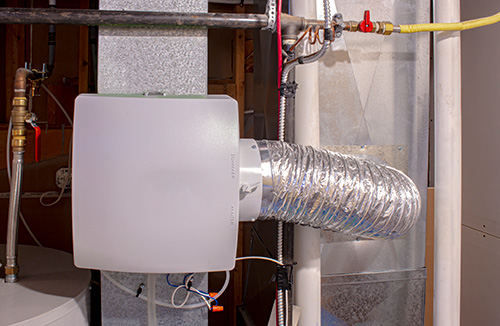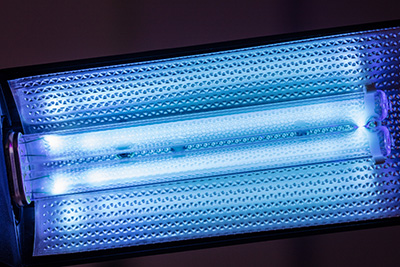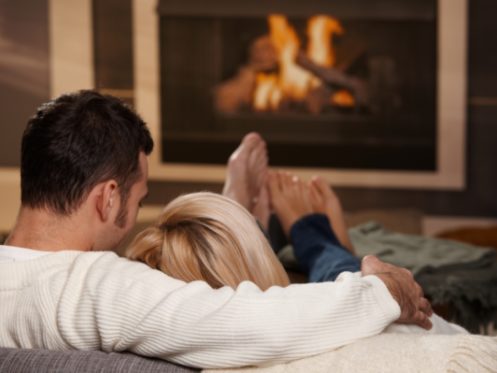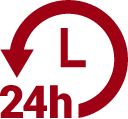Poor indoor air quality is a major problem that affects almost every home and building. Studies performed by the EPA have shown that the concentration of some harmful airborne pollutants is typically anywhere from three to five times higher inside compared to the normal outdoor concentration. While poor indoor air quality can be a problem all year round, it is typically a much bigger issue during the winter for reasons that we will now discuss.
Lack of Ventilation
The biggest contributor to winter indoor air quality issues is a lack of sufficient ventilation. Ventilation generally isn’t a big problem during the warmer months since you can always open your windows to let fresh air inside. However, the fact that most people never open their windows in the winter means that the air inside the house quickly becomes stale and the concentration of airborne pollutants continues to increase.
There is really no way to prevent airborne pollutants from being present inside your home. The issue is that many of your furnishings and the materials your home was built with release harmful pollutants known as VOCs (volatile organic compounds). Some pollutants are also produced whenever you cook anything on the stove, particularly gas if you have a gas stove. Many of the normal household cleaning products also give off VOCs and other pollutants. Due to these issues, it is important that you have a way to let the stale, polluted air out and bring fresh air in.
A lack of ventilation is a much bigger problem with newer homes than it is for older buildings. This is because newer buildings are built in a way where the outer envelope is almost completely airtight, whereas older buildings typically have lots of gaps or cracks in the envelope where air can seep in from outside and the stale indoor air can escape to the outdoors. A well-sealed envelope is great for improving the home’s energy efficiency, but it also contributes to greater air quality issues since the stale, polluted air remains trapped inside.
Running the exhaust fans in your kitchen or bathroom will help to draw the polluted air outside. However, if your home is well sealed, you will still need a way to bring fresh air in. This is where a mechanical ventilation system such as an energy recovery ventilator (ERV) can be a huge help.
An ERV is a small ventilation unit that is installed inside an exterior wall. These units use two fans that draw stale air out of the house and bring fresh air in. The fans spin in the opposite direction so that one is always drawing air out while the other brings air in from outside.
The main issue with some mechanical ventilation systems is that, since the unit is constantly bringing air in from outside, they can quickly raise your home’s temperature during the summer and lower it during the winter. This can also cause your home to quickly become much more humid during the summer. ERVs don’t have these problems as they work to capture heat and humidity from one airstream and transfer it to the other.
During the summer, the cool air being drawn out of the house works to remove heat and thus lower the temperature of the air being brought inside. At the same time, the unit also removes moisture from the air being brought in and transfers it to the outgoing airstream. The unit then works oppositely during the winter by using the warm air being drawn out to preheat the fresh air being brought in. This means that not only can an ERV help to improve your home’s air quality, but it can also lower your heating and cooling costs since it preheats and precools the air that comes into the home.
Low Indoor Humidity
Ideally, the humidity level in your home should remain around 50% throughout the year. However, the humidity level in most homes tends to be far below this during the winter. If this is the case, you may want to consider having a whole-home humidifier installed.

A whole-home humidifier is installed inside of your existing ductwork and then connected directly to your plumbing system so that it has a steady supply of water. Whenever your heating system is running, the humidifier uses heat to produce water vapor that it then releases into the ductwork. As a result, this moist air is then circulated through the home by the HVAC blower.
Bacteria and Viruses
Winter is also the time when people get sick most frequently. The flu, colds, and other illnesses often circulate through communities during the winter and can lead to you or a family member becoming sick no matter what you do. The issue here is that one sick family member can easily infect everyone else since your heating system will often circulate bacteria and viruses throughout every room. The only way to prevent this from happening is to upgrade your HVAC system with a unit that will either filter out or kill those bacteria and viruses.
Another option is to install a whole-home air purifier or filtration system. With this type of unit, the air that flows through your HVAC system is forced through a series of highly efficient filters that work to trap up to 99% of all airborne particles, including bacteria, viruses, and other germs.

Whereas UV lights only work to eliminate organic particles, a whole-home air filtration system will also filter out VOCs, pet dander, dust mites, and most all other airborne contaminants, pollutants, and allergens. This makes them far and away one of the most effective options for improving your home’s air quality so that you can both breathe more easily and hopefully avoid any illnesses spreading throughout your home.
If you’re concerned about your home’s air quality this winter, F.F. Hitchcock Plumbing, Heating & Cooling offers a number of solutions that can help to improve it. We are a full-service HVAC company specializing in heating services and cooling services, including furnace installation, AC replacement, maintenance plans, and repairs, as well as indoor air quality, and we also offer a range of plumbing and fuel services for customers in Cheshire and the surrounding areas. For more information on our indoor air quality services or to schedule an appointment, give us a call today.







